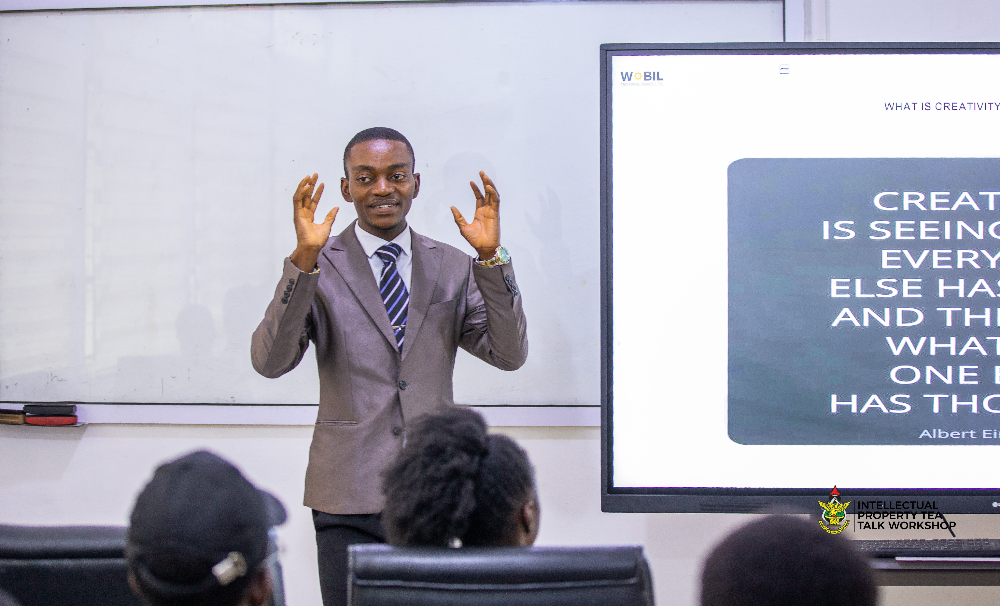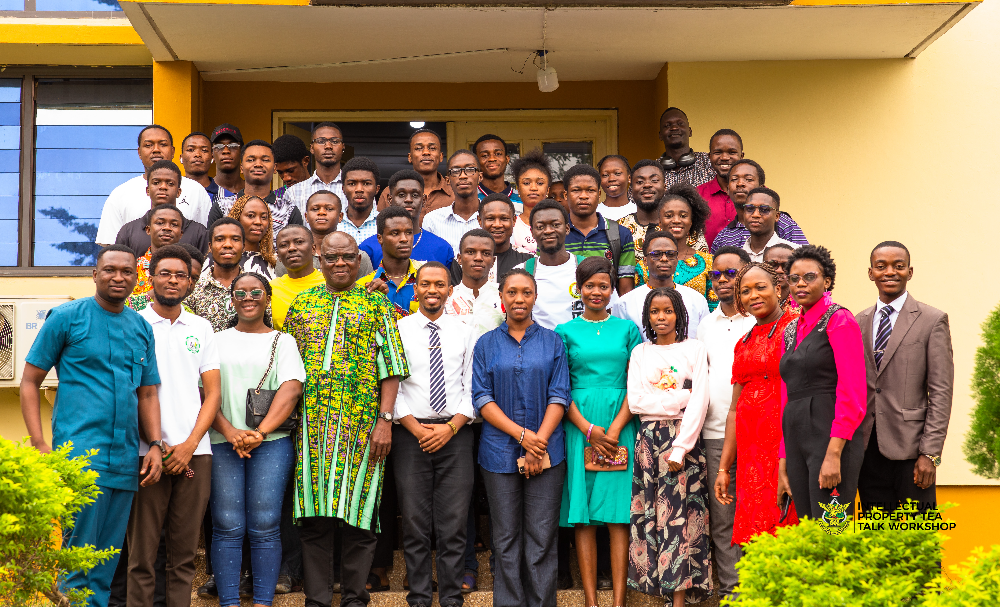The African Regional Intellectual Property Organisation (ARIPO), in collaboration with the Department of Agricultural and Biosystems Engineering (DABE) and the Intellectual Property Office at the Office of Grant and Research (OGR) has held a workshop to highlight the role of intellectual property in fostering innovation across various sectors.
The event, organised by Cohort 7 postgraduate students of the MPhil Intellectual Property programme, attracted a diverse audience, including students from KNUST and other institutions.
Professor Joseph Oppong Akowuah, Head of the Department of Agricultural and Biosystems Engineering thanked the lecturers and facilitators for their effective training of the cohort, which has empowered them to share their knowledge with others.
He emphasised the department's commitment to supporting learners and encouraged active engagement, questions, and contributions to the development of knowledge.
Dr. Outule Rapuleng, representing ARIPO, underscored the organisation's commitment to supporting activities and collaborations related to intellectual property (IP). He highlighted the need for Africa to invest more in educating its people about the IP system to foster innovation, research and development, and facilitate economic growth.
Dr. Rapuleng praised the efforts of the department in educating the Master of Intellectual Property (MIP) students and particularly recognised Professor Emmanuel Bobobee as a key stakeholder. He expressed gratitude to the MIP Cohort 7 students for organising the tea talk and appreciated their contributions to the event.
The MIP Cohort 7 students introduced the fundamental concepts of IP and the various regimes available for its protection, with presentations led by Ms. Shigwedha Hileni (Namibia), Mr. Emmanuel Mutabazi (Rwanda), and facilitated by Ms. Marry-Gold Ndlovu (Zimbabwe) and Mrs Diana Agbenu (Ghana).
Professor Bobobee shared his personal journey of inventing the popular ‘TEK Cassava Harvester,’ which is patented.
He encouraged students and researchers to develop solutions to address various challenges in Ghanaian society, discussing issues such as piracy and the process of transforming ideas into tangible products for protection and commercialisation.

Mr. John Wobil, CEO of Wobil Technologies, a leading multi-thresher company in Ghana and a WIPO Award winner, recounted his journey as a Mastercard Foundation-sponsored Electrical Engineering student.
He expressed his commitment to eliminating the drudgery of rice threshing in his community and shared how his experiences with patent searches and drafting helped him secure a patent for his Multi Thresher.
Dr. Jerome Lavie, a lecturer and support staff at the KNUST IP Office under the Office of Grants and Research (OGR), informed students about their intellectual property rights. He explained the various mechanisms for revenue sharing of co-owned IP with the University.
The workshop concluded with a panel discussion led by Professor Bobobee, Mr. Wobil, Mr. Ssemiyingo Kenneth Calvin, and Ms. Rita Ohenewa Asimpah.
The panel addressed the importance of incorporating IP considerations from the early stages of research to avoid redundancy, the forms of IP protection available, the challenges involved, and the enforcement mechanisms for protecting IP owners' rights when infringements occur. This segment sparked several engaging questions from attendees.

















